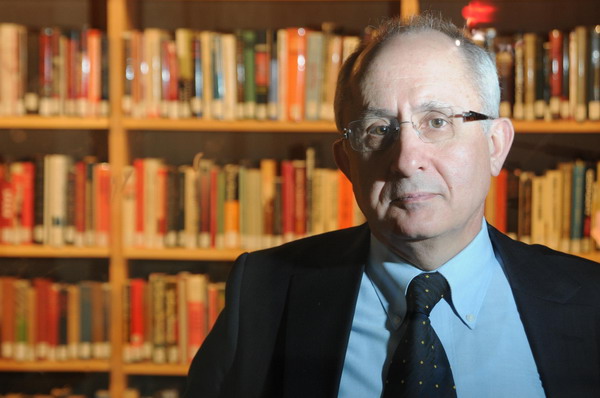By Harut Sassounian
Publisher, The California Courier
Prof. Taner Akcam of UCLA wrote a revealing article in Turkish, in Istanbul’s Armenian Agos newspaper on March 31, 2023, regarding the Turkish government’s brutal massacre of tens of thousands of minorities in Dersim, an Eastern province of Turkey, in 1938. The article was titled: “[President] Mustafa Kemal and [Prime Minister] Ismet Inonu ordered the use of poison gas during the Dersim massacre.”
Read also
While this is not the first time this information has been revealed, Prof. Akcam uncovered additional Turkish documents that confirm the details of this horrible massacre ordered by Ataturk and Inonu. The two Turkish leaders issued a secret decree in 1937 for the purchase of 20 tons of poisonous mustard gas and 24 twin-engine airplanes from Germany to exterminate through aerial spraying and bombing of Kurdish Alevis and Armenians who were living in hiding in the mountainous caves of Dersim. The thousands of Armenian inhabitants of Dersim were survivors of the Armenian Genocide who had fled and converted to Alevism to save their lives.
Many articles and books have been published in recent years, documenting Hitler’s admiration of Ataturk. The cooperation between the Turkish government and Nazi Germany is another indication of the criminal partnership of these two states. Even today, the Turkish military continues to use poisonous gas purchased from Germany in recent years, in violation of the Chemical Weapons Convention, to exterminate Kurds in Turkey and allegedly in Northern Iraq and Syria.
One of the ironic twists of the Dersim massacre is the participation of Sabiha Gokcen, an Armenian girl orphaned during the Genocide of 1915 and subsequently adopted by Ataturk as his daughter. She became the first female pilot in Turkey and participated in the bombing of Dersim, renamed Tunceli. It is not known if she was aware that she was taking part in killing her fellow Armenians who were survivors of the Genocide, just like her. One of the two Istanbul airports is named after her, as a ‘War Hero.’
A Turkish court ruled in March 2011 that the Turkish government’s massacre in Dersim could not be considered genocide according to the law because they were not directed systematically against an ethnic group. However, Rejep Tayyip Erdogan, while Prime Minister in 2011, issued an apology for the 1938 Dersim massacre. Erdogan’s apology was viewed with suspicion as an opportunistic move to win the votes of the large Kurdish population in Turkey from the government’s main opposition political party, CHP, which is a continuation of Ataturk’s Republican Party. Erdogan described the Dersim massacre “as the most tragic event in our recent history.” He added that, while some sought to justify the killings as a legitimate response to events on the ground, it was in reality “an operation which was planned step by step…. It is a disaster that should now be questioned with courage. The party that should confront this incident is not the ruling Justice and Development Party. It is the CHP, which is behind this bloody disaster, who should face up to this incident.” These comments were pointedly directed at opposition leader Kemal Kılıcdaroglu, who in fact is from Tunceli, and Erdogan’s main opponent in the May 2023 presidential election. One wonders if Erdogan would have also apologized for the Armenian Genocide if there were millions of Armenian voters living in Turkey now.
In one of the footnotes of his article, Akcam referenced a document of the German Parliament where several members asked the German government in 2019 for the details of the Turkish purchase of poisonous gas and airplanes from Nazi Germany. German chemical weapons experts were also brought to Turkey in 1938 to train the military in the use of the poisonous gas. In its reply, the German government acknowledged “the suffering of the [Dersim] victims and their descendants” and added: “the federal [German] government is ready if the events of that time are processed by Turkey to examine German participation.”
While these mass killings cannot be justified under any circumstance, the Turkish government was trying in the 1930’s to suppress domestic opposition and impose its rule in the Dersim region. During a speech in parliament on Nov. 1, 1936, Ataturk described Dersim as “Turkey’s most important interior problem.” Pursuing a policy of Turkification of ethnic and religious minorities, the Turkish government adopted in 1936 the “Law on the Administration of the Tunceli Province” which aimed to resettle the local population to other parts of Turkey. Over 50,000 Turkish soldiers were dispatched to Dersim. They captured and hanged the ringleaders of the local rebellion and indiscriminately bombed and killed thousands of its inhabitants. Even though the Turkish government admitted that 13,806 inhabitants of Dersim were killed, some put the casualties much higher at 70,000 or more. Many of the survivors were moved to other parts of the country and Kurdish girls were given to Turkish families for adoption.
Regrettably, Turkey is still in denial about its past mass crimes. The Dersim massacre is just one example of the exterminations of various minorities beginning in the Ottoman Empire and continuing in the Republic of Turkey era.



























































